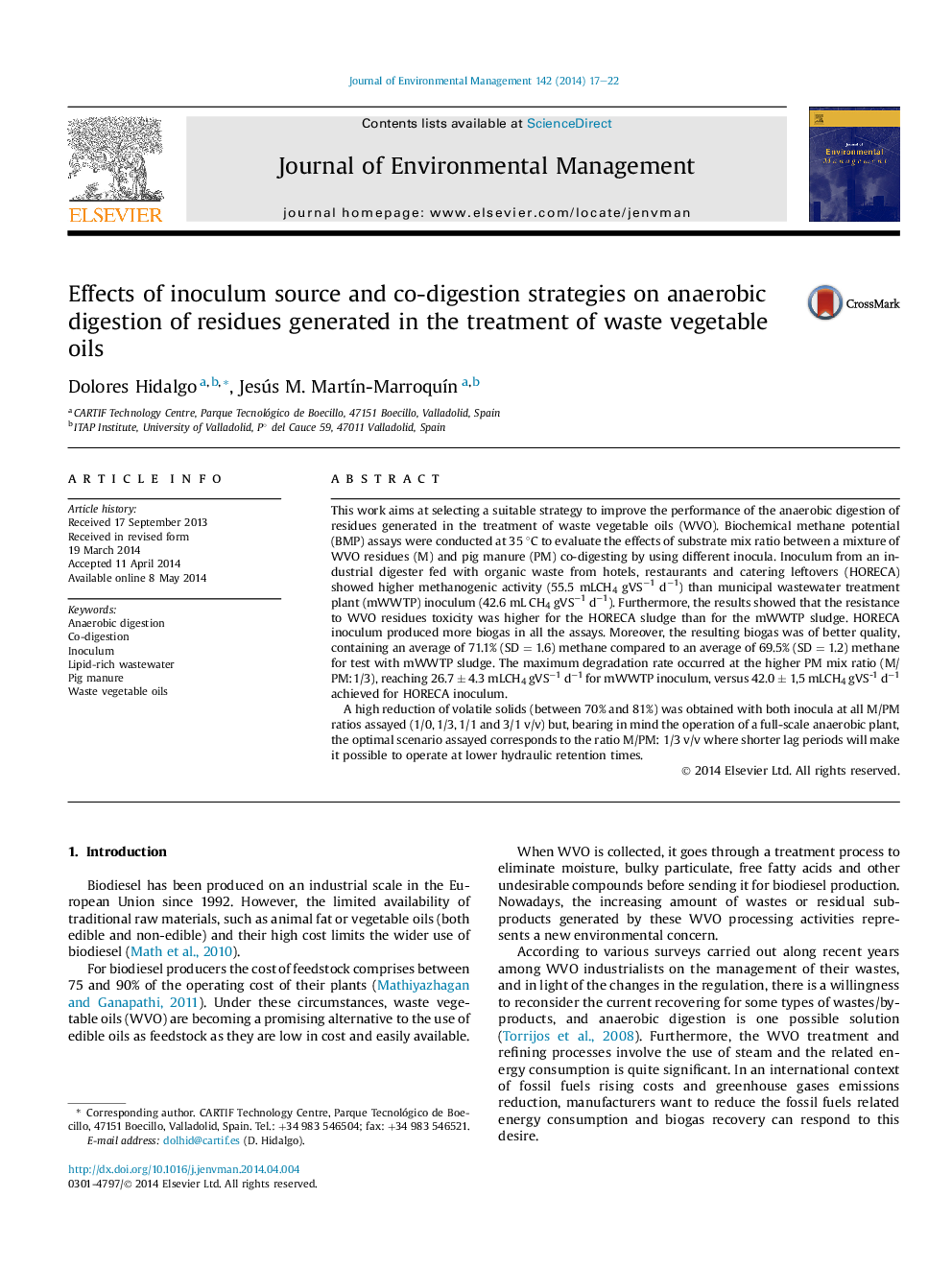| Article ID | Journal | Published Year | Pages | File Type |
|---|---|---|---|---|
| 1055867 | Journal of Environmental Management | 2014 | 6 Pages |
•Biodegradability and methane potential of WVO residues were analyzed.•Co-digestion is the key factor to prevent inhibition of methanogenesis.•Acclimated microbial consortia accelerate the start-up of the digestion process.•Volatile solids reduction up to 81% was achieved.
This work aims at selecting a suitable strategy to improve the performance of the anaerobic digestion of residues generated in the treatment of waste vegetable oils (WVO). Biochemical methane potential (BMP) assays were conducted at 35 °C to evaluate the effects of substrate mix ratio between a mixture of WVO residues (M) and pig manure (PM) co-digesting by using different inocula. Inoculum from an industrial digester fed with organic waste from hotels, restaurants and catering leftovers (HORECA) showed higher methanogenic activity (55.5 mLCH4 gVS−1 d−1) than municipal wastewater treatment plant (mWWTP) inoculum (42.6 mL CH4 gVS−1 d−1). Furthermore, the results showed that the resistance to WVO residues toxicity was higher for the HORECA sludge than for the mWWTP sludge. HORECA inoculum produced more biogas in all the assays. Moreover, the resulting biogas was of better quality, containing an average of 71.1% (SD = 1.6) methane compared to an average of 69.5% (SD = 1.2) methane for test with mWWTP sludge. The maximum degradation rate occurred at the higher PM mix ratio (M/PM:1/3), reaching 26.7 ± 4.3 mLCH4 gVS−1 d−1 for mWWTP inoculum, versus 42.0 ± 1,5 mLCH4 gVS-1 d−1 achieved for HORECA inoculum.A high reduction of volatile solids (between 70% and 81%) was obtained with both inocula at all M/PM ratios assayed (1/0, 1/3, 1/1 and 3/1 v/v) but, bearing in mind the operation of a full-scale anaerobic plant, the optimal scenario assayed corresponds to the ratio M/PM: 1/3 v/v where shorter lag periods will make it possible to operate at lower hydraulic retention times.
